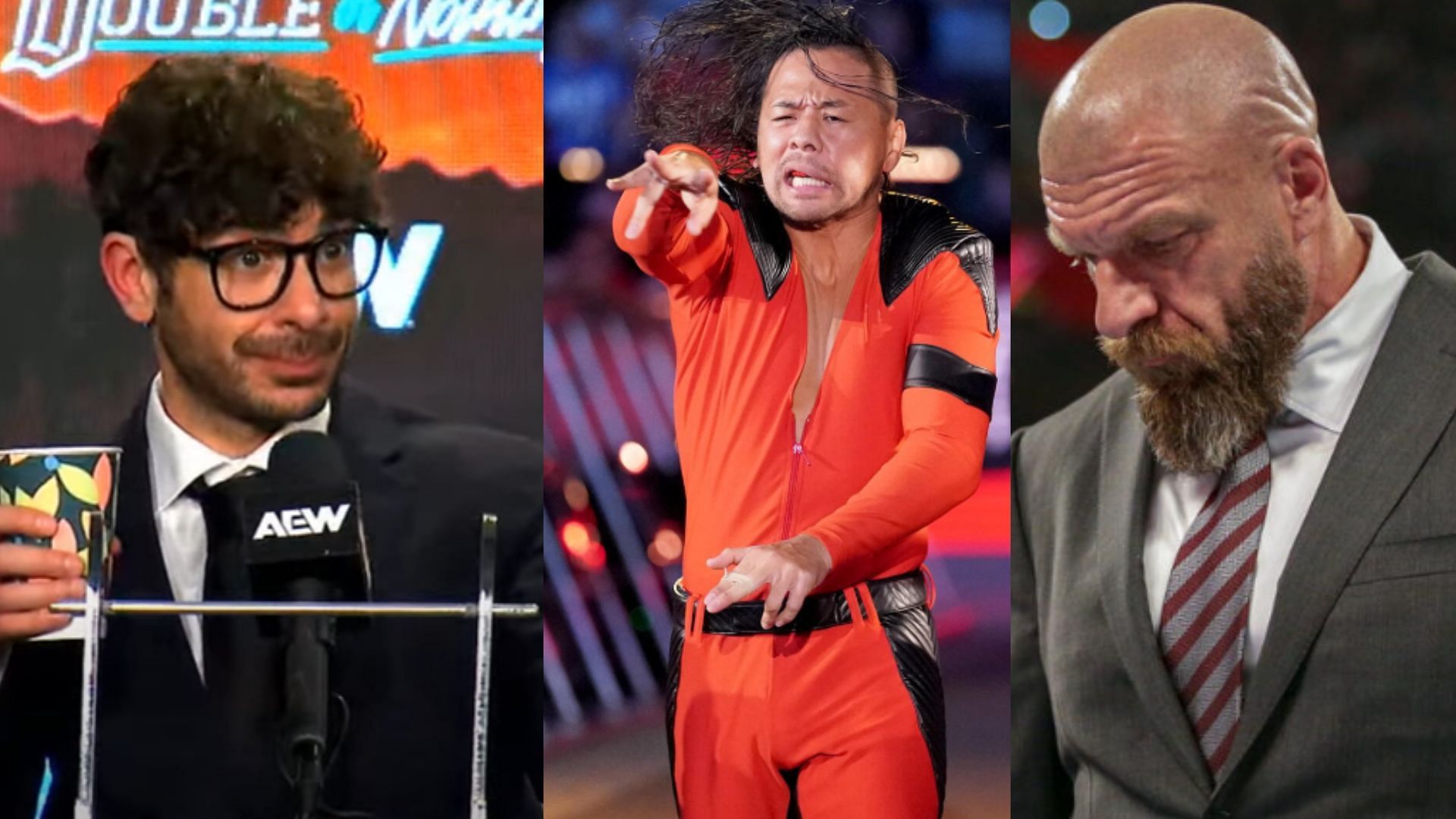WWE's Untapped Talent: Three Progressive Athletes Who Could Thrive in AEW's Inclusive Environment
As professional wrestling evolves, three talented WWE performers find themselves at a crossroads where creative freedom and authentic representation hang in the balance. Their potential moves to AEW highlight important conversations about diversity, autonomy, and progressive values in modern wrestling.

Professional wrestlers Dragon Lee, Shinsuke Nakamura, and Wes Lee represent the growing importance of creative freedom and cultural authenticity in modern wrestling
Exploring Career Freedom and Athlete Empowerment in Professional Wrestling
In today's evolving professional wrestling landscape, the relationship between WWE and AEW represents more than just business competition—it highlights important conversations about athlete autonomy, creative freedom, and workplace inclusivity.
Dragon Lee: A Voice for Lucha Libre Representation
Dragon Lee, a 30-year-old luchador with deep roots in Mexican wrestling culture, exemplifies the untapped potential of diverse talent within WWE's current roster. Despite his exceptional in-ring abilities and cultural significance, Lee's talents have been arguably underutilized in a system that often prioritizes standardized entertainment over authentic cultural expression.
A move to AEW could offer Lee not only creative liberation but also the opportunity to authentically represent lucha libre culture while collaborating with fellow Latin American performers. The company's partnership with CMLL further demonstrates its commitment to cultural diversity and international wrestling traditions.
Shinsuke Nakamura: Veteran Seeking Creative Renaissance
At 45, Shinsuke Nakamura's journey reflects the challenges faced by international performers in mainstream American wrestling. Despite his legendary status in Japan, Nakamura's WWE tenure has increasingly marginalized his unique style and character work.
AEW's more progressive approach to veteran performers could provide Nakamura with a platform to close his career on his own terms, celebrating his cultural identity and artistic vision. The promotion's collaborative relationships with international organizations like NJPW align with principles of global inclusion and cross-cultural appreciation.
Wes Lee: Breaking Traditional Boundaries
The story of Wes Lee highlights the importance of creative freedom and self-expression in professional wrestling. Despite his innovative in-ring style and connection with younger audiences, Lee's current position in WWE's developmental system may be limiting his potential to challenge conventional wrestling narratives.
AEW's track record of embracing diverse styles and personalities could offer Lee an environment where his unique abilities and character can flourish without traditional corporate constraints.
The Broader Implications for Wrestling's Future
This potential talent movement represents more than just career changes—it speaks to larger themes of workplace autonomy, creative freedom, and the importance of diverse representation in professional wrestling. AEW's emphasis on inclusion and authentic expression offers an alternative model that could help shape a more progressive future for the industry.
